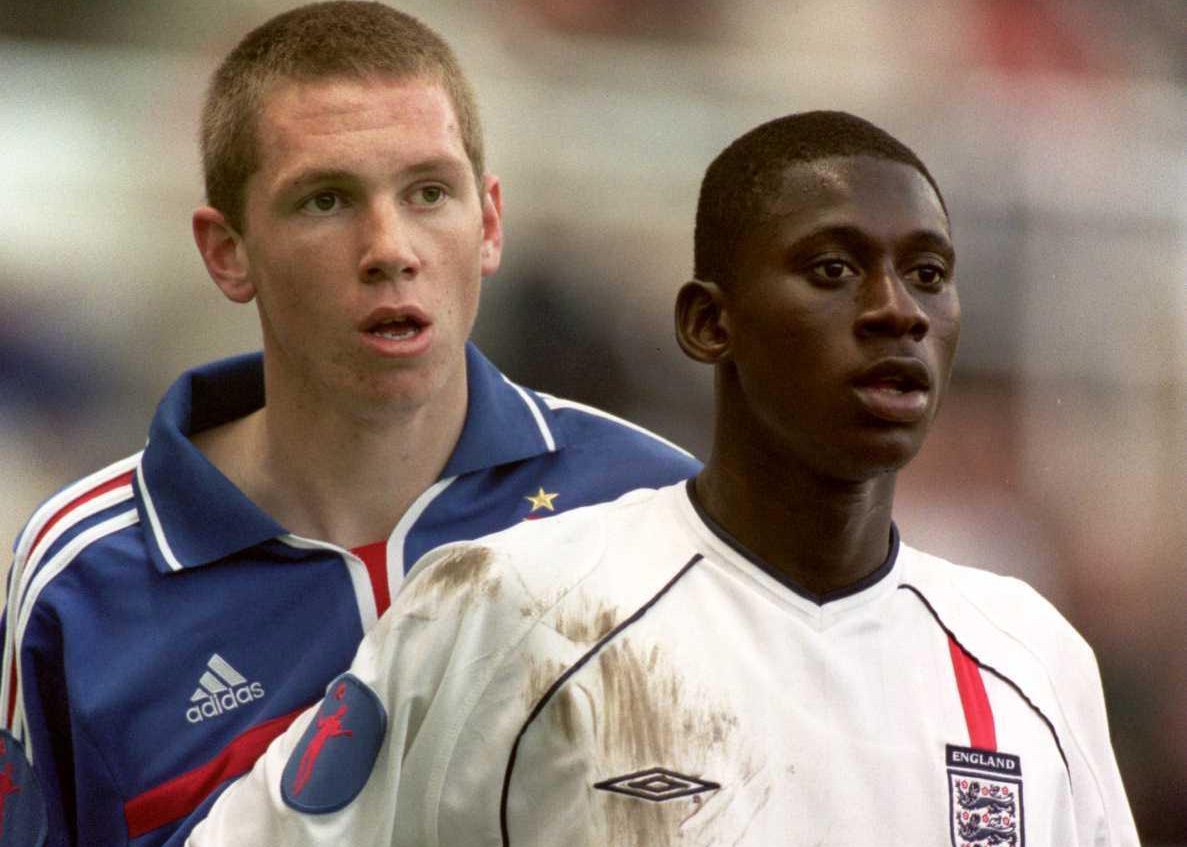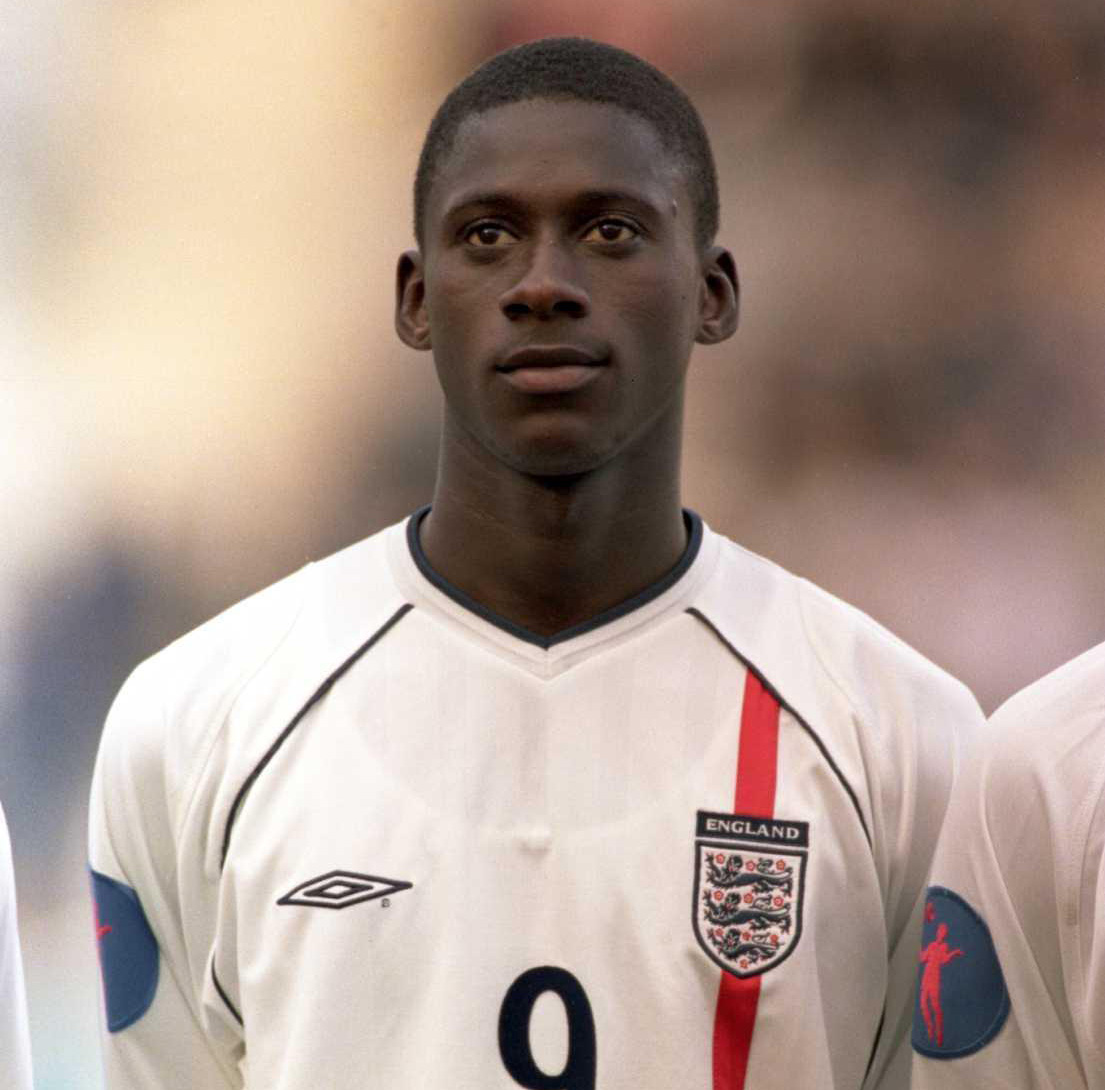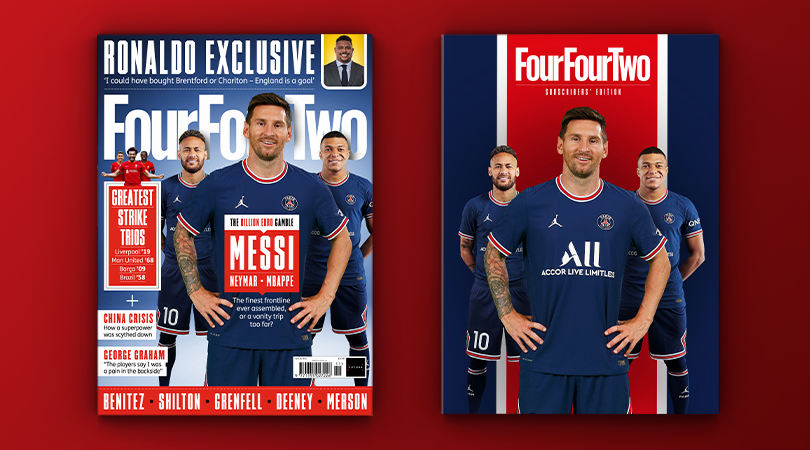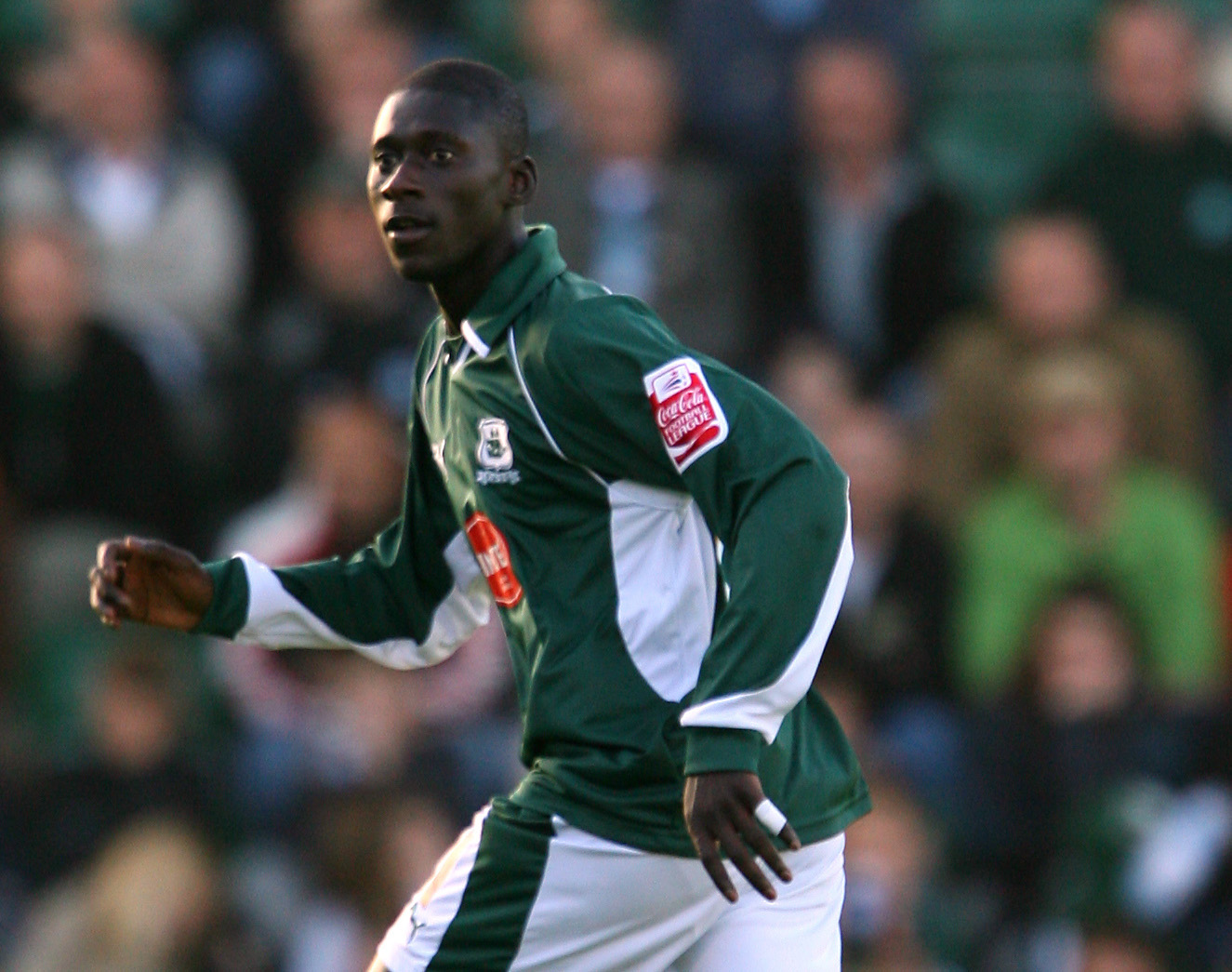"I felt like I'd failed": Cherno Samba on life after being a Championship Manager wonderkid
As a teenager, Cherno Samba shot to fame as one of the great Championship Manager wonderkids. He reveals how a career that failed to live up to those expectations became a heavy burden

This story originally appeared in the September 2020 issue of FourFourTwo. Subscribe now
Interview: Andrew Murray
Championship Manager will remain with me for the rest of my life – I’m honoured that people still talk and think about me like they do. I was probably the most famous England youth international in the country at one time, but I needed someone on my case because I was superior to everyone else in my age group. When a big move to Liverpool fell through, I collapsed on my kitchen floor and cried until I had nothing left. My appetite had gone. By the time I went to Spain in 2004, I felt like I’d failed in my own country. That’s when depression took hold. I didn’t want to be here any more. I wanted to end it all.
I’m 100 per cent a street footballer. It all started from there. You teach yourself and can be free to do what you want; to try things, whether they come off or not.
FM22 All the Football Manager 2022 wonderkids you'll need to sign
Opposite the house where I grew up in Gambia, there was this field. I played football non-stop, 24/7. I was six years old and living with my aunt and uncle, because my parents had already moved to the UK to get settled before the family followed.
Every day, they had to drag me away from the field. It may only have been a few months, but my aunt and uncle played an important role in my childhood, looking after me while my parents were away. To this day, I still try to take care of them.
The best features, fun and footballing quizzes, straight to your inbox every week.
We first lived in Watford, but soon moved to Peckham when my dad got a job in London. It was a very hostile place in the early-90s. There were drugs and gangs, so it was a tough place to be brought up, but all I wanted to do was go to the park and play football with my mates.
Football kept me off the streets. There were other influences, even from my mates who would say, ‘Why are you going off to play football? Why don’t you come and hang out?’ I stuck to football, luckily, because of my parents – my dad was really strict and I knew not to get on the wrong side of him.
My dad was an international goalkeeper for Gambia. He was a hard taskmaster and never went easy on me, although his lessons on the best ways to finish one-on-ones against keepers – what they don’t like to face and how hard it was for them to get down low – were amazing. By the time I was 10 or 11, my timing was incredible because it was so engrained. But I won’t lie: I hated it at the time.
I was explosive. I’d get the ball, do a couple of tricks and just drive through the middle of defences to score. When I was 13, I netted 132 goals in 32 matches for St Joseph’s Academy in Blackheath. I took the national record from Michael Owen, and I believe it’s not been broken since. My personal record was eight goals in one game. Our manager actually said after the eighth, ‘Cherno, no more scoring now. Why don’t you let someone else have a go?’ I’d get right up by the goal and then urge my team-mates forward, so I could set them up for a tap-in.
I was on Millwall’s books and my reputation started to grow around London and beyond. After a training session, one of the lads came up to me and said, ‘Yo Cherno: have you heard about this computer game Championship Manager? Mate, honestly, you’re an absolute beast on it! Buy it and you’ll know what I mean’.

Wow, he wasn’t wrong – my stats on it were unbelievable. Through a mixture of those goals for St Joseph’s and bursting onto the scene at Millwall, the researchers believed this is what would eventually happen. I wouldn’t say they were wrong, either. I played for England Under-15s through to the U20s, and at one stage was keeping Wayne Rooney out of the U16s. For the U15s, I was still only 14 and playing above my age group alongside Darren Bent, Glen Johnson and David Bentley.
Did I sign myself on the game? Of course I did – it would have been a crime not to. I was a bit moany, though, especially if I was coming back from an injury and wanted to play. I’d name myself on the bench and wasn’t happy with that. Everyone seems to have their own Cherno Samba story. One bloke took Cheltenham from non-league to winning everything – the Premier League, Champions League, the lot – with me scoring crazy amounts of goals. It was hilarious, and he stopped me on the street. I’ve no idea how he recognised me, but he shook my hand and said, ‘Mate, you have no idea what you’ve done for us’.
I’ll always embrace Championship Manager, but it was really weird at first. It reached the point where even when I was playing my real-life youth team matches for Millwall against Chelsea, Arsenal and others, I was trying to copy my stats in the game. In my head I was thinking, ‘The game says I’m quick, so I’ve got to be quicker’. There was a lot of banter and I got opponents saying, ‘I know you’re good on the game, but you’re not doing that to us today’.
Distractions are always there. I hate excuses, but I struggled to keep my feet on the ground. What I’ve come to realise is that no one would tell me if I ever did anything wrong. Everyone was singing my praises, which was the last thing I needed at the time. I was scoring goals for Millwall and England, but I didn’t try hard enough. If we were doing an hour-long shooting drill at training, I’d walk off after about 15 minutes. It was the same if we were in the gym for half an hour – I’d only do five or 10 minutes. I blame myself for that, but I also needed someone to grab hold of me and say, ‘This is wrong’. They didn’t want to upset me, I think, because of what I could do for them.
It felt like I was becoming a commodity. I was sponsored by Nike, so my mates wanted me to go to Nike Town and get them anything they wanted. Agents were worse – I remember one offering my mum and dad £50,000 just to look after me. That’s still a lot of money now, but back in those days it was serious. My dad didn’t get it: he was thinking, ‘Wait, we should be paying you to look after our son and his interests, not you paying us’. He was earning about a grand a month, so could easily have taken the money, but he’s a man of principle and thought it a betrayal of me if he accepted.

I had interest from Liverpool, Manchester United, Leeds and Arsenal. I went to all of them, and even though I’m a United fan – I shouldn’t be saying this! – Liverpool sat well with me. I met Gerard Houllier and he asked me who my favourite player was. At the time it was Michael Owen, so Gerard called Michael over and he made me feel so relaxed. I spoke to Robbie Fowler, Steven Gerrard and Emile Heskey, too.
By the time it came to making my decision, my phone rang one day when I was on the school bus. It was Owen. You can imagine what it was like – my mates went mad. They didn’t believe me until I put him on loudspeaker. ‘It’ll be a privilege for you to come here and play with us – you’ll be really welcome,’ he said. He sold it to me. I’m not being funny, but I couldn’t let Michael Owen down, could I?
There was a lot of back and forth. Liverpool offered £1 million at first, then £2m in instalments, but Millwall would only accept £2m up front and that scuppered the deal. All of this was hidden from me and I had no idea about any of it – only my agent, the two clubs and my parents knew. When the transfer broke down after two weeks, my dad called me into the kitchen to explain. I fell to the floor and cried my eyes out.
I didn’t play football for six months – to all intents and purposes, I’d quit. I wanted nothing to do with it. Over time, my parents and friends convinced me that I had a God-given talent and should return, but my appetite was gone. I’d lost the love and football became a job.
But something had happened while I was down on the kitchen floor. If I were to carry on in the game, all I cared about was being financially stable when my career was over. I was 15. A kid of that age shouldn’t be thinking like that, but that’s what was in my head.
Eventually I went back to Millwall, who guaranteed me a three-year contract by the time I was 17. I wasn’t even playing senior football, but I was getting paid more than some of the first-team players. I took it, but my head was gone. I didn’t enjoy it any more.
FM22 Tactics guide: The best formations you need to try
My relationship with the club was never the same again, and there was a lot of resentment against me over wanting to sign for Liverpool. The atmosphere was sour. I had certain coaches who were definitely in for me, and one in particular used to hammer me. I’d have to keep doing loads of 12-minute runs, or sprint from one end of the training pitch to the other for no reason. I expected it, but he was just trying to make my life miserable.
I took it until I was 19 and signed for Spanish second tier side Cadiz. It was any youngster’s dream: my apartment overlooked the beach, there was beautiful weather, food and style of football. I was getting paid well and it was a mesmerising time to make that step.
But after three to six months, I began feeling isolated, hurt and was thinking about the Liverpool move again. I was sweating at night and couldn’t sleep. When I finally did, I had nightmares. I was watching my team-mates for England playing week in, week out in the Premier League and thought I’d failed in my own country. I was still a regular for England U19s and looked forward to going away with them. It felt like my club – the same as Millwall in my early years there.
I’d moved to England from Gambia when I was six, but everything is different at that age. England was home. All of a sudden you’re 19, in Spain and it’s totally different. Training was over by 10am because of the heat, so I had the whole day to myself. I’d just go around shopping. Every. Single. Day. I mean, there’s only so much you can shop, and my phone bill was insane – we’re talking £1,000 a month. I was constantly on the phone to my friends in London.
That’s when depression got hold of me – the sport was burying me alive. I was so bitter with life. Why couldn’t I go to the club I wanted?
Over the course of a few weeks, I’d go to the physio room and take as many tablets as I could. I felt hopeless. One day I took an overdose to try to end my life. I didn’t want to be here any more. It was horrible.
One of my team-mates found me on the floor and took me straight to hospital. If it wasn’t for his intervention, I wouldn’t be here talking to you now. I’ll always be grateful to him, but I’ll never reveal his name because he wants to remain anonymous. He’s still one of my closest friends and we talk regularly.
After that episode, my best mate from home flew out to Spain more often. When I first moved there, he’d just taken a new job and couldn’t come. I remember how difficult it was phoning him and saying, ‘Look, I really need you here’. From then on, he came over every two weeks. That calmed my nerves down more than you can imagine. I’d started seeing a girl, too, so we got married soon after and she moved in with me straight away. Having that support network helped.
But I couldn’t tell them, my mum, dad or anyone about what I was going through. I never thought depression would be something that would happen to me.
Most people only found out about my suicide attempt when I wrote my book, because I internalised everything. I wouldn’t talk to anyone. I became extremely good at disguising what was going on inside me, but I was hurting. Doing the book was my therapy. I finally let go, and once I’d started to open up, I couldn’t stop. It was like the whole world had been lifted off my shoulders. I felt ready to speak about all those dark times and experiences.
When my best mate heard this for the very first time, he was in tears. He had no idea back then, because all I’d told him was that I needed him to come and visit me more often. He didn’t think it was anything other than a bit of homesickness.
When I told him, my mum, dad and family, they hated themselves. I said, ‘It’s not you, it’s me’. I’d always felt that if I talked about this, it was a sign of weakness, but I now know I was weak for not speaking. Strength comes through talking, not the other way round.
It’s so important to open up. Talking to someone about what you’re going through is the most important thing you can do in that situation, whether it’s with your mum, dad, partner, friend, cat or dog. Anyone. You just need to talk. It’s an essential part of the process, and if I can encourage one person to talk through their issues with someone else, that makes it all worth it. That’s why I did the book.
There’s been a definite change in football. More players are coming out and talking about their experiences, and they aren’t afraid of being called weak for doing so. Everyone goes through depression. There are highs and lows in life. Some days you wake up and don’t want to go to work, no matter your job. It’s all part of depression.
After two years in Spain, my wife got pregnant and we were keen to come home. I wanted my first child to be born in the UK. Luckily, Cadiz were having some financial problems, so when I heard that Plymouth boss Ian Holloway was interested in signing me on the last day of the 2006 summer transfer window, I was delighted. Home soil.

I did feel like I had unfinished business in England, but it was still just a job to me. I was going to clubs looking for financial security once I’d retired. That’s why I had spells in Finland, Greece and Norway after two years at Plymouth. It was all about the money.
However, now I want to give something back to the game. I’ve done my coaching badges up to the A-Licence, so I can work at academies and teach emerging talents about how to deal with pressure. There’s no better mentor to enlighten them about the pitfalls of the game: I’ve been there and done it. A lot of youngsters think they’ve already made it when they haven’t. There aren’t any shortcuts in football – you’ve got to make every effort. I had all the attributes and ability, but didn’t give it my all because at one point I was better than everyone else.
I also founded a Gambian club in 2004, called Samger FC. I wanted to build a club where I was born, so we scouted the best young players out there and put them into an academy. They worked their way up to the First Division, which I’m so proud of.
My ultimate ambition is to manage Gambia and reach the finals of a major tournament for the first time in the country’s history. I know I’ve got to learn from my mistakes and walk before I can run, though. I need to work in UK academies, keep learning every day and take the experience on board – things I didn’t do when I was playing. Learn the trade, then make the step up.
I’m often asked if I’d change anything about Championship Manager and the answer is always hell no! I’ve read that some wonderkids feel the game contributed to their failed careers, but I disagree. There are distractions in general life – you just need the willpower and mental strength to go forward. It’s up to the individual to knuckle down, work hard and get to where they want to be. I hate excuses and don’t think I’ve done anything to regret. Whatever you do in life, there’s pressure, so that was always going to be there. If anything, I owe Championship Manager. I’ve done adverts and still do bits of work for them.
I had three goals in life: to become a professional footballer, play for England at youth level, and for England or Gambia at senior level. I did all that. My problem was that expectations were so high for me at such a young age, it looks like a failed career. At the age of 15, I was tipped to win the 2006 World Cup for England.
Not many people can say they achieved their lifetime goals, but I did. I’m very proud of that.
If you're experiencing difficulties with your mental health or feel like you need to talk, you can call Samaritans (any time and free of charge) on 116 123.
Subscribe to FourFourTwo today and save over a third on standard price.
Restock your kit bag with the best deals for footballers on Amazon right now
ALSO READ
LIST Football Manager 2022: All the FM22 wonderkids you'll need to sign
 Join The Club
Join The Club





